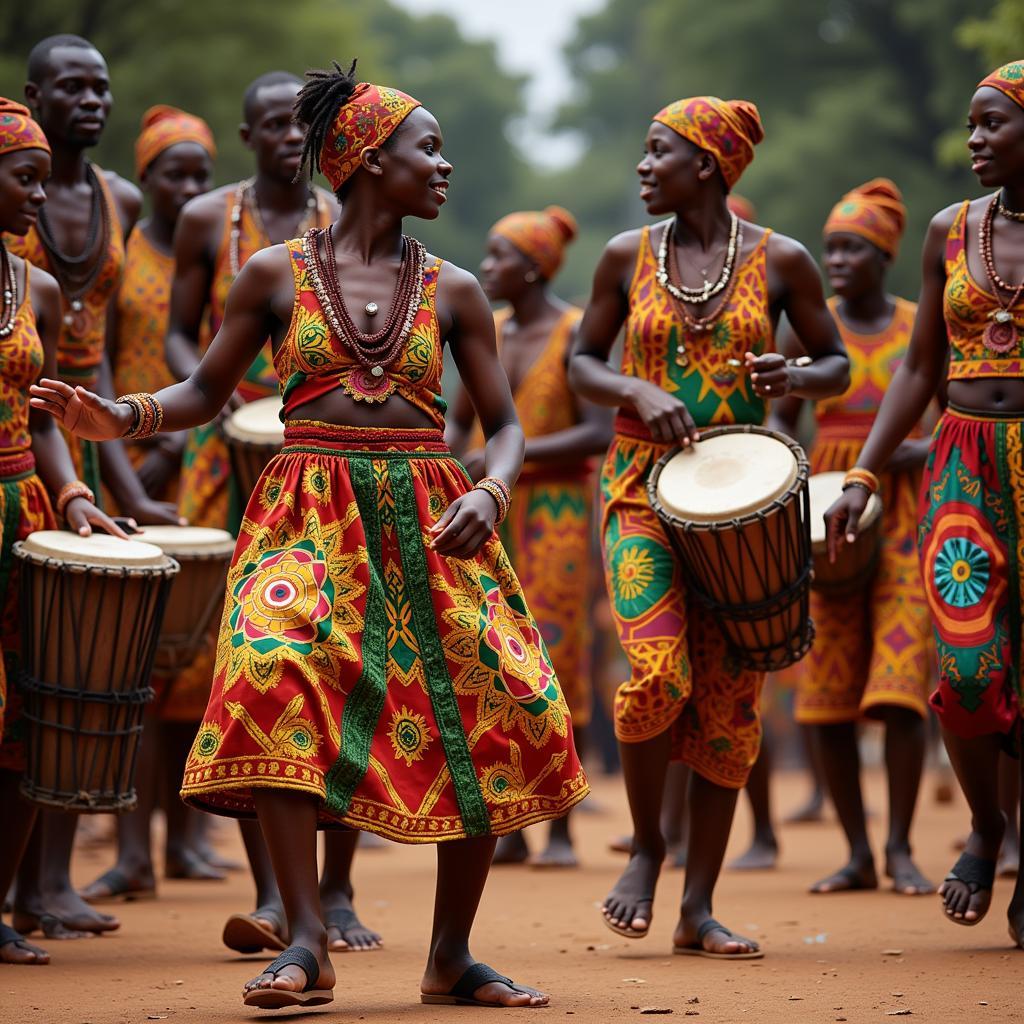Understanding the Albino African Experience
Albinism in Africa presents a unique set of challenges and triumphs. This article explores the complexities of being an Albino African, delving into the cultural perceptions, health concerns, and social stigmas surrounding this genetic condition. We’ll also celebrate the resilience and achievements of albino individuals across the continent. african albino person
Cultural Perceptions of Albinism in Africa
Across Africa, beliefs about albinism vary widely. In some cultures, albino individuals are revered, seen as spiritual beings with special powers. Others hold harmful misconceptions, associating albinism with witchcraft or bad luck. These beliefs can lead to discrimination and even violence, making life incredibly difficult for albino Africans. These contrasting views highlight the diverse cultural landscape of the continent and the importance of understanding these nuances.
Health Challenges Faced by Albino Africans
Albinism affects melanin production, resulting in a lack of pigmentation in skin, hair, and eyes. This makes albino Africans extremely susceptible to the harsh African sun, increasing their risk of skin cancer. Vision impairment is also common, often requiring specialized eye care. Access to these essential healthcare services can be limited, particularly in rural areas, exacerbating the health challenges they face.
Addressing the Healthcare Needs
Organizations are working to provide sunscreen, protective clothing, and eye care to albino Africans. Education and awareness campaigns are also crucial in promoting early detection of skin cancer and addressing the specific healthcare needs of this vulnerable population.
Social Stigma and Discrimination
Sadly, many albino Africans face social stigma and discrimination. They may be ostracized by their communities, denied educational opportunities, and face difficulty finding employment. This marginalization can have a profound impact on their mental health and well-being. For instance, some albino individuals feel like outsiders, struggling to find a sense of belonging.
Overcoming Adversity and Celebrating Achievements
Despite the challenges, many albino Africans are breaking down barriers and achieving remarkable success. They are becoming advocates, artists, entrepreneurs, and leaders in their communities. Their stories of resilience and determination are inspiring change and challenging stereotypes. Consider the growing visibility of african american albino models in the fashion industry.
What is the cause of albinism in Africa?
Albinism is a genetic condition inherited from both parents. It’s important to note that albinism occurs globally, not just in Africa. The prevalence of albinism in some African countries might appear higher due to various factors, including social and cultural practices. It is also worth noting the fascinating diversity within the animal kingdom, such as the existence of african albino birds.
 Albino African Student in Classroom
Albino African Student in Classroom
“Education is key to dispelling myths and fostering acceptance,” says Dr. Abeni Adebayo, a leading researcher on albinism in Africa. “We need to create a society where albino individuals are valued and empowered to reach their full potential.”
“Furthermore, addressing the healthcare needs, especially access to sunscreen and eye care is paramount to ensuring the well-being of albino individuals,” adds Dr. Adebayo.
Conclusion
Understanding the albino African experience requires acknowledging both the challenges and the triumphs. By addressing the cultural perceptions, health concerns, and social stigmas surrounding albinism, we can create a more inclusive and supportive environment for albino Africans to thrive. Learn more about the fascinating african albino frog.
FAQ
- What is albinism?
- Is albinism more common in Africa?
- What are the health concerns associated with albinism?
- How can I support albino individuals in my community?
- What are some resources available for albino Africans?
- What are some common myths about albinism?
- How does albinism affect vision?
More Questions?
For further information on related topics, explore our articles on the african eyering lovebirds price.
When you need assistance, please contact us. Phone: +255768904061, Email: kaka.mag@gmail.com Or visit us at: Mbarali DC Mawindi, Kangaga, Tanzania. We have a 24/7 customer service team.


